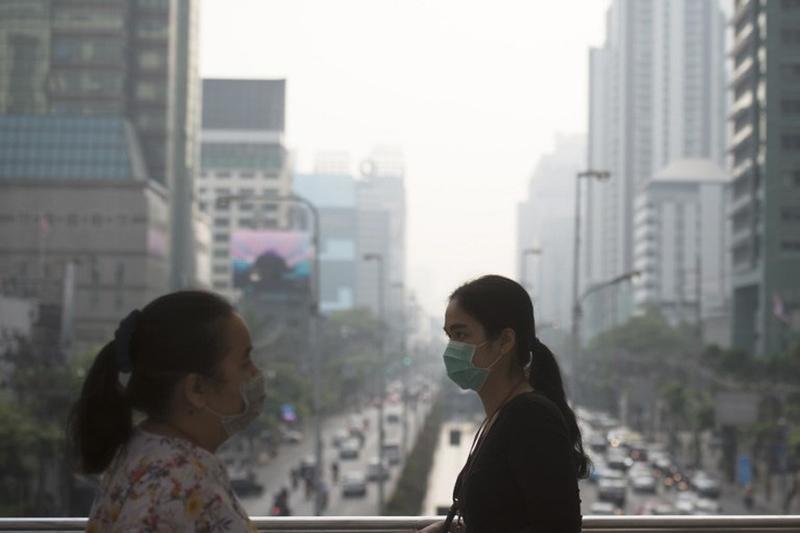
People wear face masks on their way to work in the business district of Bangkok. Environment group Greenpeace said Bangkok suffered the worst air pollution in its history between Jan 1 and Feb 21. AFP
Prime Minister Prayut Chan-O-Cha, Bangkok governor Aswin Kwanmuang, and the National Environment Board have been summoned to testify today at the Central Administrative Court over the PM2.5 air-pollution crisis that has affected Greater Bangkok for nearly two months.
The court is expected to question Prayut, Aswin and members of the board in response to a complaint filed by the Stop Global Warming Association (SGWA) and 41 Bangkok residents.
The complainants accuse them of negligence over the smog crisis, saying they failed to invoke the Environment Act and the Public Health Act to control PM2.5 levels.
The World Health Organisation describes PM2.5 as carcinogenic.
The particulate matter with a diameter of 2.5 micrometres or less is a cause of several other health problems, with long-term exposure linked to mortality.
According to the complaint, negligence of officials in tackling the crisis forced many schools and businesses to temporarily close. A number of people have also developed respiratory disorders and the Thai economy has suffered serious damage. Tourists, moreover, are reluctant to come to Thailand over reported air-quality problems, say the complainants.
“We will prepare evidence of negligence and will strongly urge the court to order the three accused to swiftly introduce measures to deal with the sources of air pollution,” said SGWA president Srisuwan Janya. He said those burning sugarcane plantations and those buying burnt sugarcane should also face punishment.
The Thai Chamber of Commerce, meanwhile, has warned that if the smog crisis is prolonged, financial damages would amount to between 10 billion baht ($320 million) and 15 billion baht a month.
That estimate is based on the money people will have to spend on medical bills and N95 facial masks, as well as dwindling tourism income.
People are already spending around 594 baht a month on average for masks and related protective products. With members of the public becoming more aware of the dangers posed by PM2.5, their spending would likely jump to 802 baht a month if the smog crisis drags on for as long as six months, the Thai Chamber of Commerce said.
“We conducted an opinion survey on the crisis during the Chinese New Year festival which found that people are worried that the PM2.5 problem will be prolonged,” said Thanawat Polvichai, director of the Economic and Business Forecast Centre of the University of Thai Chamber of Commerce. The Nation (Thailand)/Asia News Network









